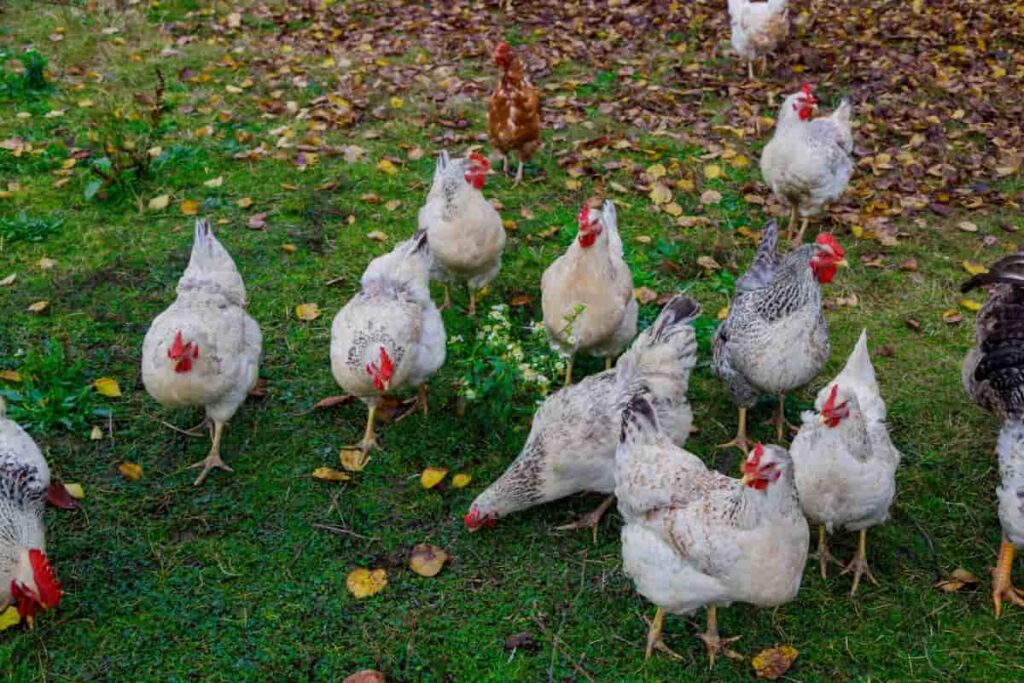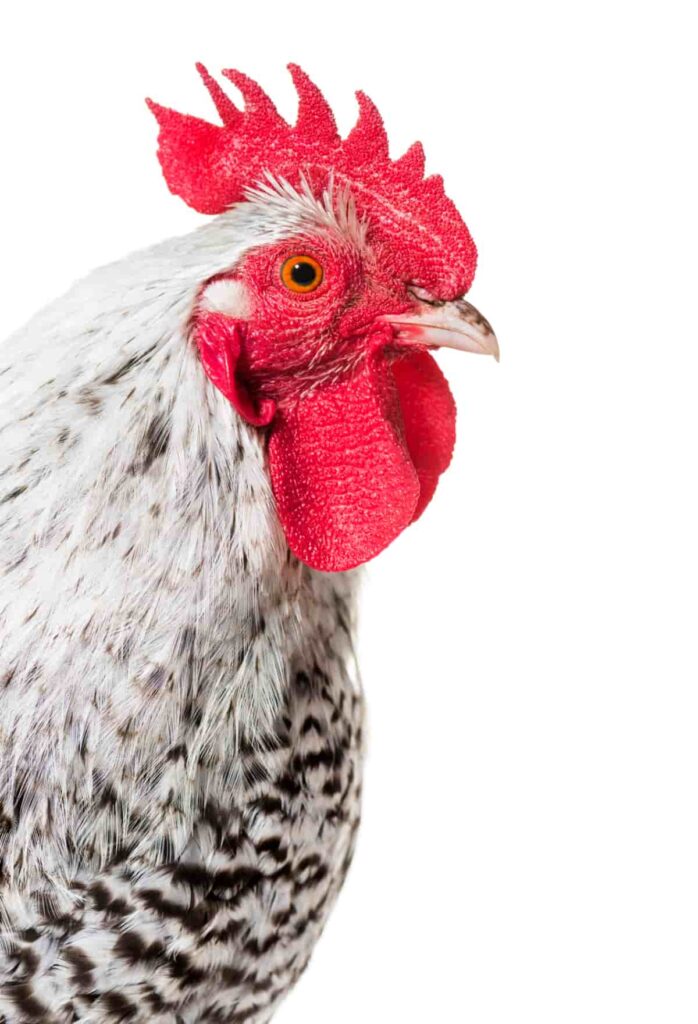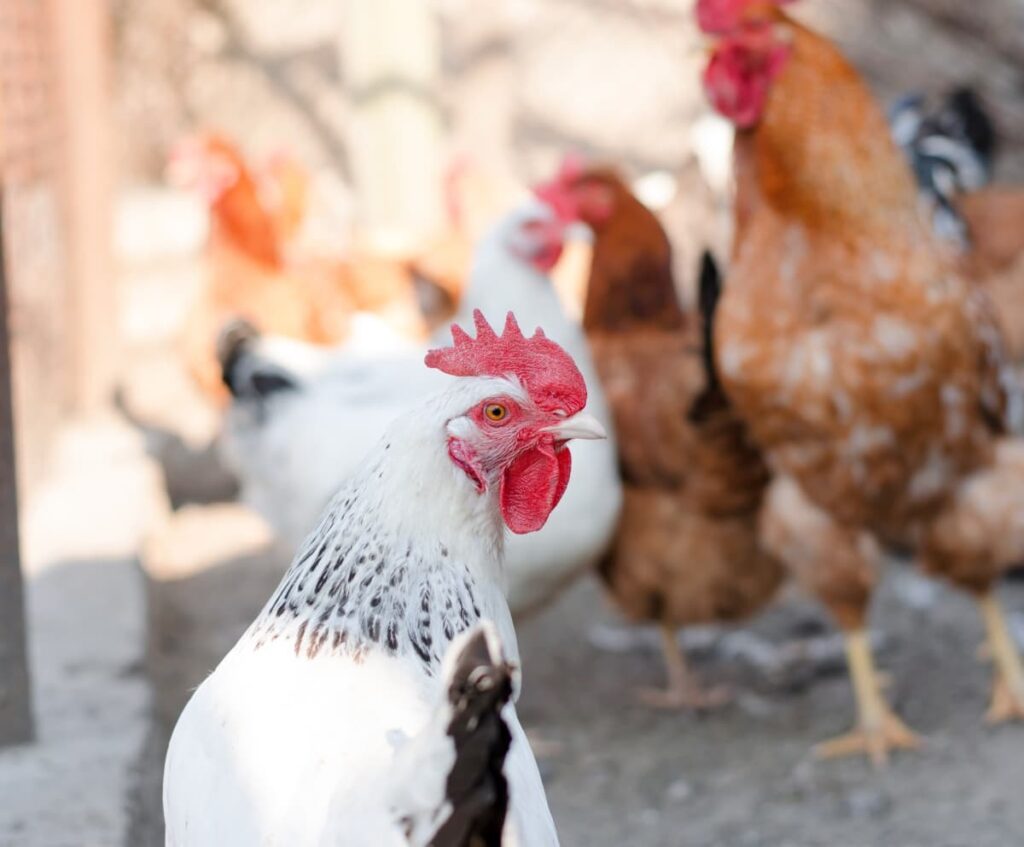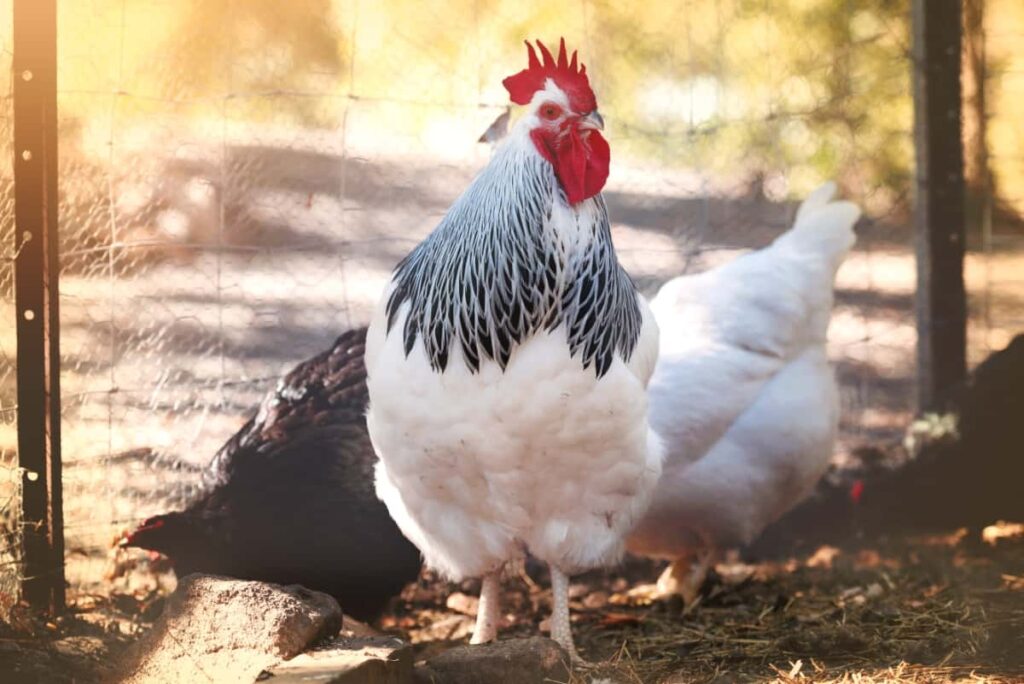Delaware chickens may not be as well-known as some other chicken breeds, but they have a fascinating history and background. These birds were originally developed in the state of Delaware in the United States, hence their name. While they are relatively new to the chicken world, they have quickly gained popularity for their excellent egg-laying capabilities and meat production. The breed was first recognized by the American Poultry Association (APA) in 1952. The goal was to produce a dual-purpose breed that excelled in both meat quality and egg production.

How to Raise Delaware Chickens
Breed Characteristics and Benefits
Delaware chickens also have friendly and calm temperaments. They are generally docile birds that can easily adapt to different environments, making them suitable for beginners or families looking to raise backyard poultry. In addition to being great producers, Delaware chickens are also relatively low-maintenance.
Appearance and Temperament
When it comes to the appearance of Delaware chickens, they have a distinctive and eye-catching look. These birds have a white body with black feathers on their necks, giving them a striking contrast. The hens also tend to be slightly smaller than the roosters in size. In terms of temperament, Delaware chickens are known for being docile and friendly.
Delaware Chicken Price and Lifespan
The cost of Delaware chickens can vary depending on several factors, such as age, breed purity, and availability. Typically, you can pay around $5 to $10 per baby chicken from reputable breeders. In terms of lifespan, Delaware chickens have a relatively decent life expectancy. With proper care, the lifespan of Delaware chickens can live up to 6-8 years on average.
Setting Up the Coop
Coop Design and Size Requirements
Setting up the coop for your Delaware chickens is a major step in ensuring their comfort and safety. Make sure the coop is spacious enough to accommodate your growing flock. Since males can reach up to 8 lbs., while females typically weigh around 6 lbs., providing ample space will prevent overcrowding. In terms of size requirements, experts recommend allowing inside the chicken coop around 4 square feet per bird. Ventilation is another crucial aspect of chicken coop design.
Ventilation, Lighting, and Temperature Control
Proper airflow in the coop is essential for maintaining a healthy environment for your flock. Good ventilation helps remove excess moisture, ammonia, and odors that can lead to respiratory problems. When it comes to lighting, chickens rely on natural light patterns to regulate their internal clocks.
Providing them with adequate daylight hours promotes normal behavior and egg production. Temperature control is another vital aspect of Delaware chicken care. Delawares thrive in moderate temperatures ranging from 13-24°C. Extreme heat or cold can stress the birds and affect their overall health and productivity.
Feeding and Nutrition
Starter, Grower, and Layer Feeds
To ensure their optimal growth and egg production, it’s essential to provide them with the right feed at each stage of their development. When starting, baby chickens require a special type of feed known as starter feed. This feed is formulated to meet their nutritional requirements during the first few weeks of life.
As your Delaware chickens grow older, they will transition to grower feeds. These feeds have slightly lower protein levels compared to starter feeds but still provide the necessary nutrients for healthy muscle development and overall well-being. Once your Delaware hens reach maturity, they will require layer feeds that are specifically designed for egg-laying chickens. Layer feeds contain essential nutrients such as calcium and vitamin D, which are important for strong eggshells and consistent egg production.
Supplements and Treats
While a balanced diet of commercial feeds is crucial, adding some variety to their meals can keep them happy and satisfied. One popular supplement for Delaware chickens is oyster shell grit. This provides calcium, which helps strengthen eggshells and promotes healthy bone development in your flock.
In case you missed it: Raising Ancona Chickens: A Complete Guide to Care, Breeding, and Benefits

Another favorite treat among Delawares is mealworms. Just be sure not to overdo it on the treats, as too many can lead to weight gain or digestive issues. Remember, supplements and treats should never replace a balanced diet but rather complement it. Always provide clean water alongside these extras to ensure proper hydration for your flock.
Water Management
Providing Clean and Accessible Water
These birds need a constant supply of fresh water to stay hydrated and maintain optimal egg production. So, let’s dive into the best practices for managing water in your chicken coop. Make sure you have a reliable water source that is easily accessible to the chickens.
Monitoring Consumption and Preventing Contamination
By ensuring that your chickens have access to clean and uncontaminated food and water, you can help prevent diseases and keep your chickens thriving. One way to monitor consumption is by regularly checking the feeders and waterers. In addition to monitoring consumption, it’s important to take steps to prevent contamination. Regularly clean out the feeding troughs and remove any spilled or spoiled food.
Health and Wellness
Common Health Issues and Prevention
One common health issue that Delaware chickens may face is respiratory problems. To prevent this, make sure your coop is properly ventilated and provides adequate airflow. Another issue is parasites such as mites or lice. Regularly inspecting your chickens for signs of infestation, such as feather loss or excessive scratching, will help you catch any issues early on.
It’s important to maintain hygiene practices within the coop. Staying up-to-date with vaccinations is vital in preventing diseases such as Marek’s disease or Newcastle’s disease. Consult with a veterinarian about recommended vaccination schedules for your flock.
Regular Health Checks and Vaccination Schedule
During health checks, it is important to examine the birds closely for signs of illness or injury. Besides regular physical examinations, vaccinations play a crucial role in preventing diseases among your flock. Contact a veterinarian who specializes in poultry to determine which vaccines are necessary for your specific area and flock size.
The vaccination schedule change varies based on the region you live in and the prevalent diseases in your area. Common vaccines include those against Marek’s disease, Newcastle disease, infectious bronchitis, and avian influenza. Remember that disease prevention is better than cure when it comes to keeping Delaware chickens healthy.
Egg Production
Maximizing Egg Laying
These chickens are known for their excellent egg-laying capabilities, producing large or jumbo-sized brown eggs. With proper nutrition, they can lay around four eggs per week, giving you approximately 200 delicious eggs each year. To maximize Delaware egg production, it’s important to create an environment that encourages healthy laying habits. Proper lighting plays a major role in stimulating egg production.
Brooding and Rearing Baby Chickens
Incubation and Hatching Techniques
First, it’s important to have a reliable incubator that maintains the right humidity levels. During incubation, turning the eggs regularly is vital for proper development. After approximately 21 days, you’ll start to see tiny cracks appearing as your adorable little chickens begin to hatch. At this point, resist any temptation to help them out of their shells; they need to do it themselves to strengthen their muscles and respiratory system.
Once all the little chickens have hatched, transfer them into a safe brooder setup with constant warmth provided by a heat lamp or heating pad. Line the brooder floor with pine shavings or straw for comfort.
Brooder Setup and Chicken Care
First things first, select a suitable brooder box or area that provides enough space for the little chickens to move around comfortably. Next, ensure proper temperature control within the brooder. Provide fresh water in shallow containers that are easily accessible to prevent drowning accidents. Make sure it is always clean and replenished regularly. Feeding your baby chickens with chicken starter feed specifically formulated with essential nutrients is vital for their growth and development.
In case you missed it: Wyandotte Chicken Varieties: Exploring Wyandotte Types with Colors

Predator Prevention and Security
Identifying Potential Threats
One common predator that poses a threat to Delaware chickens is the fox. Another threat comes from raccoons, who are notorious for raiding chicken coops at night. By being vigilant and identifying these potential threats early on, you can implement effective predator prevention measures such as reinforced fencing, secure locks on coop doors, and even motion sensor lights or alarms near the coop area.
Coop Security Measures and Best Practices
Start by fortifying the perimeter of your chicken coop with sturdy fencing that is buried underground to prevent predators from digging underneath. Install strong doors made of durable materials such as metal or thick wood. Use quality locks that are not easily tampered with, ensuring that predators cannot gain access to your coop. Provide secure roosting areas inside the coop where chickens can sleep comfortably without fear of being targeted by predators lurking outside.
In case you missed it: My Pet Chicken: How to Raise from Scratch

Conclusion
Delaware chickens offer an attractive combination of productivity and adaptability. Their ability to thrive in various climates and environments makes them suitable for both small backyard coops as well as larger commercial operations. Delaware chickens have attractive appearances and friendly temperaments.
Note: The images presented in this post are intended solely for representation purposes. The images are meant to serve as visual aids and should not be relied upon as accurate representations of their real-life counterparts.
- Effective Fish Pond Construction Techniques for Beginners
- Irrigation and Water Management in Pineapple Farming
- Blossom to Harvest: Mastering Flowering and Pollination in Papaya Farming
- Pig Fattening Essentials: From Selection to Sale for Beginners
- Raising Wagyu Cattle: A Complete Guide for Premium Beef Production
- Soil Types and Their Water Holding Capacity
- Optimizing Irrigation Schedules for Coconut Groves for Enhanced Yield
- Espresso Your Garden: Coffee Grounds for Healthier Acid-Loving Plants
- The Best Soil Mix for Snake Plants: How to Mix Your Own Snake Plant Soil
